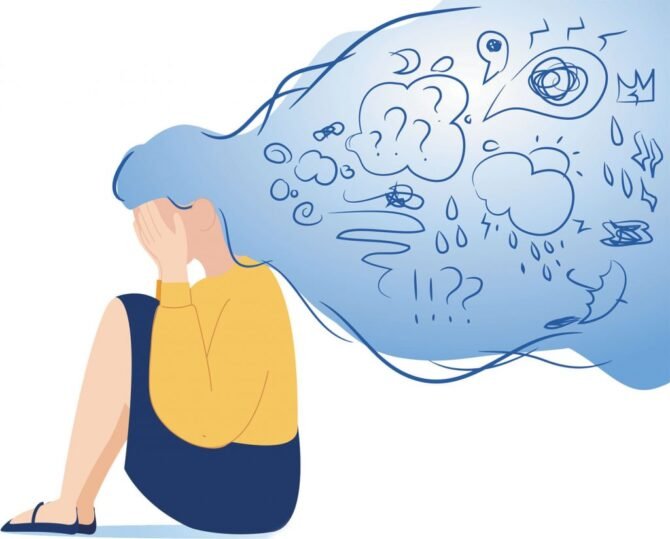Let me ask you some questions. Have you ever wondered what people mean when they talk about decluttering? Do you struggle to find what you need or focus on what matters? Do you wish you had more space, time, and energy for the things you love?
If you answered yes to any of these questions, then you might benefit from decluttering your home and your life. Decluttering is the process of getting rid of excess, unwanted, or unnecessary items that take up space, create chaos, and cause stress. Decluttering can help you free your mind and your space, and improve your mental and physical health.
In this blog post, we will explore some of the benefits of decluttering, and share some tips and resources on how to declutter effectively and sustainably.
 Why Declutter?
Why Declutter?
Decluttering can have many positive effects on your well-being, such as:
- Better focus. Clutter makes it hard to find what you need, and distracts you from your goals. By clearing out the visual clutter, you can improve your concentration and productivity. Research has shown that people are less irritable, less distracted, more productive, and better able to process information with an uncluttered and organized work area.
- Higher self-esteem. When you have trouble staying organized, you may feel out of control or incompetent. By improving your living space, you can restore feelings of confidence and pride. You can also express your personality and style through your environment, and create a space that reflects who you are and what you value.
- Better relationships. Conflict with family or roommates often occurs when one person can’t control clutter. You may also feel embarrassed to invite friends or guests into your home when it’s messy. By decluttering, you can reduce tension, improve communication, and enjoy socializing in a tidy and comfortable space.
- Lower risk of asthma and allergies. Clutter can attract dust, mold, mildew, and pests, which can trigger asthma and allergies. By decluttering, you can prevent these health hazards and improve the air quality in your home.
- Improved lifestyle and well-being. Decluttering can make it easier to prepare healthy meals in an orderly kitchen, sleep better in a neat room with a tidy bed, exercise more in a spacious living room or garage, and relax more in a calm and peaceful environment. Decluttering can also save you time and money by reducing the need to clean, organize, or buy more stuff.
How to Declutter?
Decluttering can be a challenging task, especially if you have a lot of stuff or emotional attachment to your belongings. However, there are some strategies that can help you declutter effectively and sustainably:
- Start small. Don’t try to declutter your whole house in one day or one week. You’ll likely get overwhelmed and give up. Instead, start with a small area, such as a drawer, a shelf, or a corner. Set a timer for 15 minutes or 30 minutes, and focus on that area until the time is up. Then move on to another area or take a break.
- Sort by category. Instead of decluttering by room or location, declutter by category or type of item. For example, gather all your clothes from different closets or drawers, and sort them into piles: keep, donate, recycle, trash. This way, you can see how much you have of each category, and make better decisions on what to keep or get rid of.
- Follow the one-in-one-out rule. To prevent clutter from accumulating again after decluttering, follow the one-in-one-out rule: for every new item you bring into your home, get rid of an old item of the same category. This way, you can maintain a balance between what you own and what you need.
- Use the four-box method. A simple way to declutter is to use the four-box method: label four boxes as put away (items that belong somewhere else), fix/mend (items that need repair), donate (items that are still usable but unwanted), and trash (items that are broken or unusable). As you go through each area of your home, put each item into one of the four boxes. Then deal with each box accordingly: put away the items that have a designated place; fix or mend the items that need attention; donate the items that can benefit someone else; and trash the items that are beyond repair.
- Ask yourself some questions. Sometimes it can be hard to decide whether to keep or discard an item. To help you make the decision easier, ask yourself some questions such as:
- Do I use this item regularly?
- Do I love this item?
- Does this item add value to my life?
- Does this item fit my current needs and lifestyle?
- Would I buy this item again today?
- If I get rid of this item, will I regret it or miss it?
If you answer no to most of these questions, then you probably don’t need the item and can let it go.

Where to Find More Resources?
If you want to learn more about decluttering, here are some resources that you can check out:
- The Life-Changing Magic of Tidying Up: This is a best-selling book by Marie Kondo, a Japanese organizing expert. She introduces the KonMari method, a decluttering system that focuses on keeping only the items that spark joy.
- The Minimalists: This is a website and a podcast by Joshua Fields Millburn and Ryan Nicodemus, two friends who embraced minimalism and simplified their lives. They share their insights and tips on how to live with less stuff and more meaning.
Conclusion
Decluttering can have many benefits for your mind and your space. By getting rid of the excess, unwanted, or unnecessary items in your home and your life, you can free up space, time, energy, and money for the things that matter most to you. Decluttering can also improve your focus, self-esteem, relationships, health, and well-being.
To declutter effectively and sustainably, start small, sort by category, follow the one-in-one-out rule, use the four-box method, and ask yourself some questions. You can also find more resources online or in books to help you declutter.
We hope this blog post has inspired you to declutter your home and your life. Remember: less is more! Happy decluttering!
